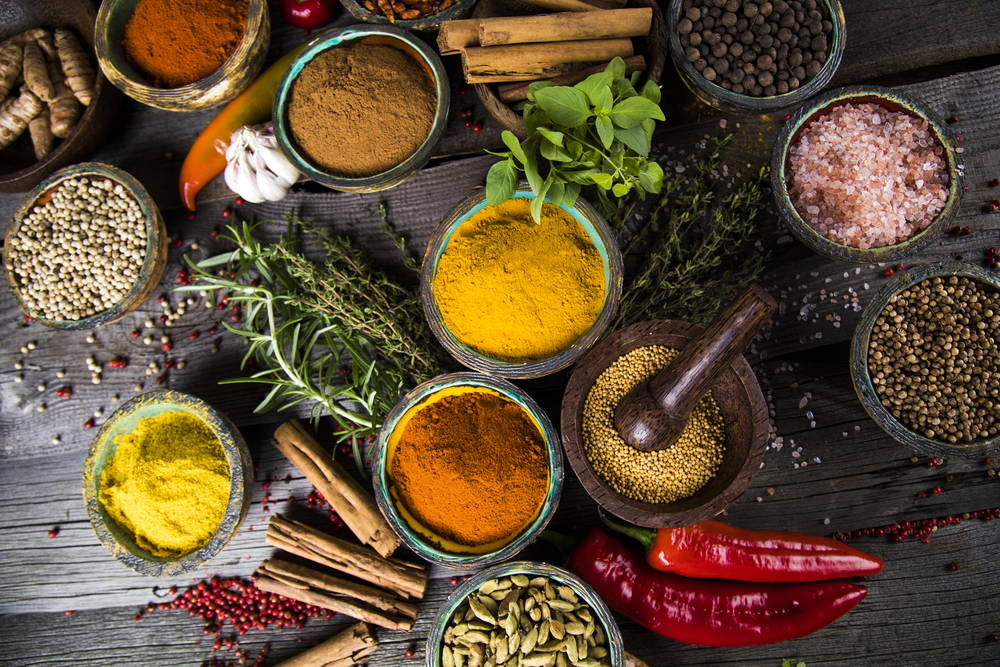For example, there are some flavours and spices that have different clinical benefits. These include those with mental allies and others with relieving properties. Some could even help in combating illness. Turmeric, peppermint and ginger are some of the flavours that make up this list.
The Greeks used a variety of spices and flavours to treat various ailments. Hippocrates used plants like saffron and cinnamon to treat fevers and other ailments.
Research shows that different flavours and flavours may have properties which could alleviate explicit symptoms.
This article will investigate the clinical benefits and uses of 10 different flavours. These include the recent turmeric, peppermint and ginger.
Ginger
For centuries, ginger has been used to treat gastrointestinal problems and ailments. People use ginger as a spice or to improve stomach issues.
Ginger is closely associated with turmeric. It also has a high level of cell strengthening and relieving properties. Only pomegranates, and certain types of berries, contain more. Ginger is a powerful antiemetic, according to ant nausea experts. It can be used to treat nausea, morning sickness, and development difficulties. Ginger can help you restore erectile issues. You can also purchase Tadalista 20 or Vidalista 40mg online to treat this condition.
Several studies have indicated that ginger may have anti-cancer properties. The high levels of cell support in ginger are largely responsible for this. Ginger can also stop cells from reproducing and dividing, as well as stop activator proteins and a hailing pathway that contributes to illness. All in all, the majority of these tests were done in a laboratory, but more clinical trials should be conducted.
Turmeric
Turmeric (also known as curcumin) is a spice that has many clinical and culinary benefits. Studies in the lab have proven that turmeric is a powerful antibacterial, antiviral and antiparasitic agent. Research shows that the best properties of turmeric are its cell support and quieting effects.
Turmeric is a powerful antioxidant that can help to eliminate oxidative stress in the body. It does this by identifying toxic-free progress. Free radicals can cause tissue damage and are unbalanced electrons. They can also be a catalyst for chronic infections such as cardiovascular disease.
Turmeric’s high content of cell support can reduce the risk of free fanatics outlining, and the effect of weight gain on the body.
Cumin
Cumin is used in cooking for its sweet smell. It is also important to reduce cholesterol, blood pressure, and weight. It also has high disease prevention specialist potential.
Peppermint
Peppermint, a very noticeable zest that’s usually used to upgrade trained professionals, is close to Europe and Asia. People used it in Europe and Asia before the advent of modern drugs for its cooling effects, and antibacterial properties, as well as to chip away stomach-related wealth.
Echinacea
Echinacea, a plant that comes from coneflowers, is well-known for its ability to boost the immune system and prevent colds. Zest is not a cure for diseases. However, it can be used to treat certain conditions.
Cinnamon
Since 2,800 BCE, civic institutions have used cinnamon to treat, protect, and gift people. Cinnamon is still used today, but not to the extent it was in centuries past. It has many health benefits, including antimicrobial properties, cell support, calmness, anti-carcinogenic, and anti-diabetic effects.
Cinnamon could lower glucose levels, according to a 2015 study. Many minimally randomised control primers have suggested that cinnamon’s role in coordinating blood glucose levels is important. However, the results are not convincing enough.
Examiners were hoping to determine if cinnamon’s mental benefits could also be used as a treatment for Alzheimer’s disease. Specialists have concentrated on CEppt, a packet found in cinnamon bark, to determine if it can help slow down the progression of Alzheimer’s. When mice consumed this concentrate, their mental capacity was essentially eroded.
Stew powder
Bean stew powder triggers protein changes that help to reduce weight. Examiners aren’t sure how to use this capability. In a study, people who consumed stew in moderate amounts for a period of 12 weeks saw weight loss results. This was due to Stew’s ability to help the body more quickly control insulin. Researchers found that bean stew was also able to reduce stomach fat and decrease appetite and energy.
Parsley
Parsley was first used in the Mediterranean region. Many have used it in that time for culinary flavouring as well as therapeutic therapy to treat a range of clinical issues including hypertension. You can also purchase and take Suhagra Amazon on the internet and super vidalista for ED issues.
Disclaimer:
The views and opinions expressed in the above article are independent professional judgment of the experts and The Kanil Prwire does not take any responsibility, in any manner whatsoever, for the accuracy of their views.
The above is non-editorial content and The Kanil Prwire does not vouch, endorse, or guarantee any of the above content, nor is it responsible for them in any manner whatsoever. Please take all steps necessary to ascertain that any information and content provided is correct, updated, and verified.

